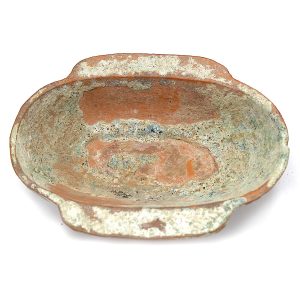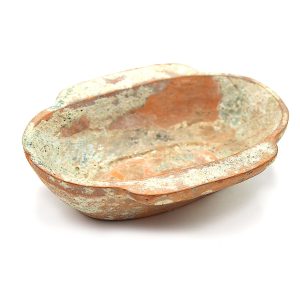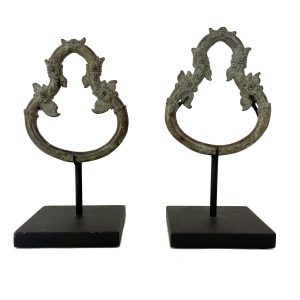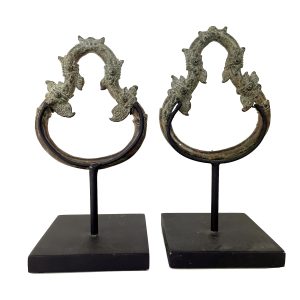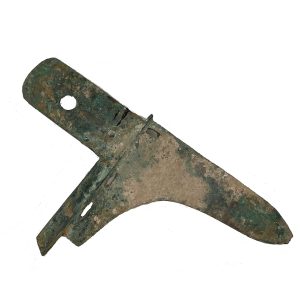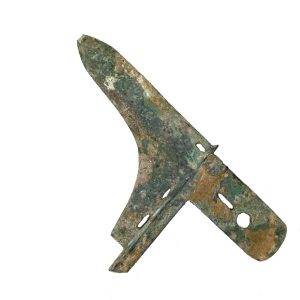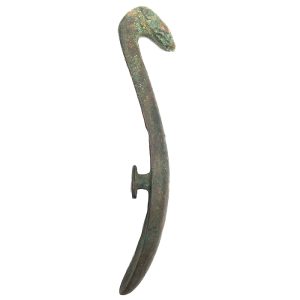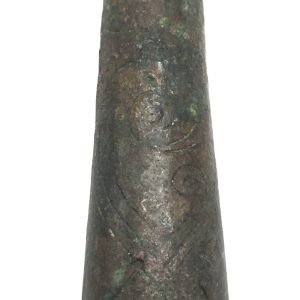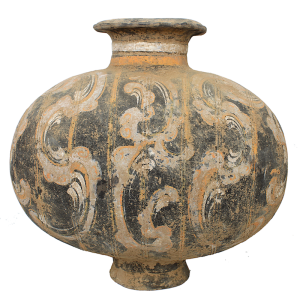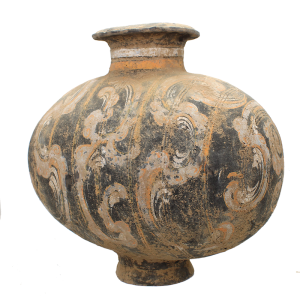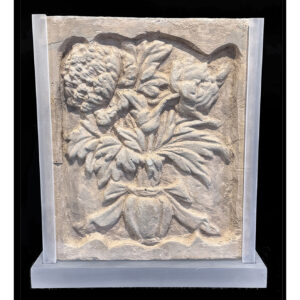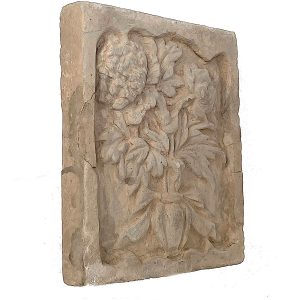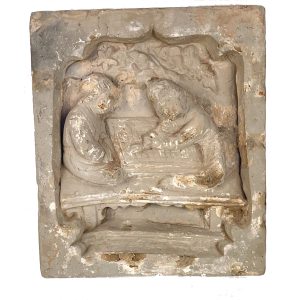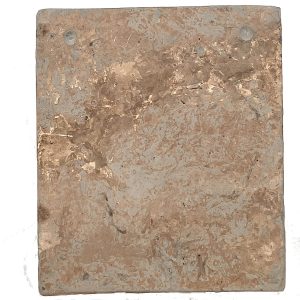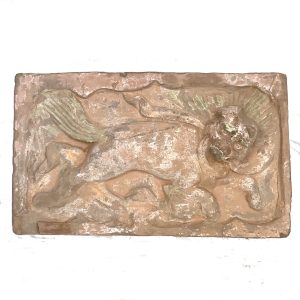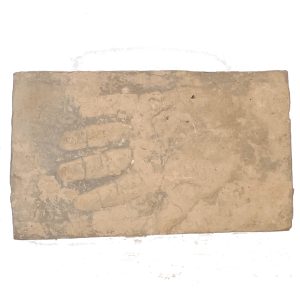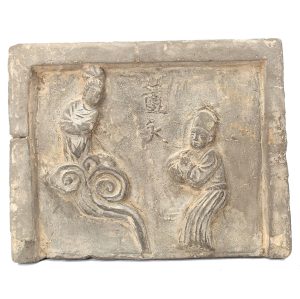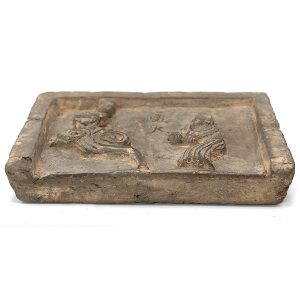-
Sale!


$450.00 Original price was: $450.00.$310.00Current price is: $310.00.
H: 1.5″ W: 5.125 ” D: 3.875 ” | FREE SHIPPING WITHIN CONTINENTAL U.S.!
Used for rituals and ceremonies, lead green glazed earthenware wing cups were popular burial objects. The tomb’s humidity caused the lead to oxidize to a lustrous, prized iridescent, silver-green.
-
Sale!


$395.00 Original price was: $395.00.$315.00Current price is: $315.00.
H: 2.5″ W: 4.5″ D: 2.375″ | FREE SHIPPING WITHIN CONTINENTAL U.S.!
This diminutive mingqi pig is totally charming and fanciful with an iridescent glaze and would be especially appealing as a send off for the deceased to the nether world or in a contemporary setting. Pigs were especially prized and images were often included as items the deceased would need to live comfortably in the after life.
-
Sale!


$1,350.00 Original price was: $1,350.00.$785.00Current price is: $785.00.
Each H:4.675 ” W:3.875 ” D:.5 ” | FREE SHIPPING WITHIN CONTINENTAL U.S.
Pair of bronze palanquin rings to transport Khmer Empire royalty and elite decorated with a lotus motif found in Lopburi, Thailand, the western most Khmer outpost.
-
Sale!


$395.00 Original price was: $395.00.$325.00Current price is: $325.00.
H: 4.375 ” W: 7.5 ” D: .24 ” | FREE SHIPPING WITHIN CONTINENTAL U.S.
Han dynasty dagger-axes (ge) like this were ancient military weapons.The dagger-shaped blade was mounted to a pole or shaft and secured using a shank and the holes on the two sections of its body. Their use ended with the advent of chariots and tightly packed military formations. He piece comes with a uniquely fashioned box.
-
Sale!


$485.00 Original price was: $485.00.$350.00Current price is: $350.00.
H: 4.1″ W: 1 ” D:.625 ” | FREE SHIPPING WITHIN CONTINENTAL U.S.!
In the Han, belt hooks became a symbol of wealth, high status and power hung vertically from belt holes used in life and buried with the deceased for his journey to the afterlife . Ornamented with incised decoration this beautiful piece is dragon shaped with beautiful verdigris deposits.
-
Sale!


$2,150.00 Original price was: $2,150.00.$1,750.00Current price is: $1,750.00.
H: 11.75” W: 12.25” CALL 213-568-3030 OR EMAIL [email protected] FOR SHIPPING.
Families placed cocoon jars with auspicious designs containing magical mixtures of mulberry leaves in tombs for departed’s souls to drink to transform in afterlife.
-


$995.00
H: 11” W: 9.5” D: 1.65” | FREE SHIPPING
This earthenware brick tile bordered with a deep scalloped frame depicts a vase with a bouquet of propitious flowers: a chrysanthemum and a peony wrapped with an elegant ribbon. Tiles like this were made to decorate the large numbers of buildings created during the prosperous Song dynasty and to adorn tombs. This elegant brick is in good condition for its age with expected chips and cracks, some restoration of background and a re-glued frame break on each side. It has earth adherents from its burial in a tomb.
-
Sale!


$495.00 Original price was: $495.00.$395.00Current price is: $395.00.
H: 11” W: 9.5” D: 2” | SOLD
As part of the The Song dynasty cultural expansion, government and public buildings and tombs were built with interior walls decorated with earthenware unglazed mold-made brick tiles. This fanciful vibrant tile with a scalloped frame portrays two people playing a board game called wéiqí which originated in China over 2500 years ago. It is the world’s oldest and most complex board game still played.
-
Sale!


$485.00 Original price was: $485.00.$395.00Current price is: $395.00.
The Song dynasty (960–1279) is considered the most culturally brilliant era in later imperial Chinese history. A massive expansion during this dynasty produced government, public and religious buildings and tombs with walls decorated with earthenware unglazed mold-made brick tiles. Some were purely decorative and others were wishes for happiness and comfort in the deceased’s afterlife…
-
Sale!


$445.00 Original price was: $445.00.$325.00Current price is: $325.00.
Chinese funerary tiles, as forms of mingqi adorned tomb as early as the Han dynasty depicting everyday scenes, entertainment, mythical beasts, folklore, history, literature and poetry. A Han stone tomb relief rubbing in Stories from China’s Past (p. 173) labeled “Ascending to Heaven in Deer Chariot” is reflective of this Song brick-tile. During the Song…
End of content
End of content

